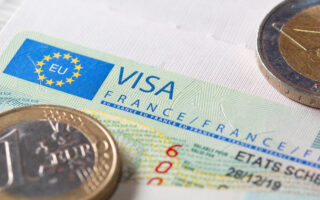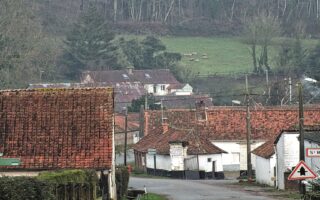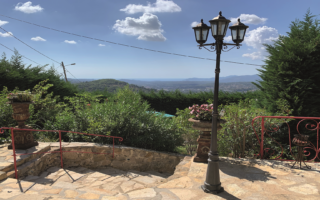Property experts in France
France has a whole host of property experts ready and willing to help you with your move, explains Peter Danton de Rouffignac…
Whether you are buying or selling a French property there are numerous professionals you can turn to who will help guide you through the process. They include of course your estate agent and notaire, but there are other less well known professionals such as a g�ometre or maitre d’oeuvre, architects and interior designers, insurance and tax advisors, surveyors, valuers and relocation experts. This article explains what they do and what they can offer you.
Property buying and selling
French estate agents or agents immobilier are members of what is known as a controlled occupation that is carefully supervised by the French government and regulated under the loi Hoquet of July 1972. Estate agents are licensed by the local prefecture, and have to be diplom� (a degree in business or law is generally required) or provide evidence of several years professional experience before being issued with a carte professionnelle covering either transactions (transactions) and/or property management (gestion). They also have to secure minimum professional indemnity insurance and a financial guarantee if they receive client funds, such as a deposit from an intending property buyer.
The estate agent’s main role is providing an outlet for the marketing and sale of properties that have been entrusted to them by owners. For these services they charge a percentage commission, payable on completion of the transaction. The level of commission can be freely set by the agent but must be clearly displayed at his premises and stated in documents related to the transaction.
Estate agents generally belong to one of the professional bodies such as FNAIM or SNPI, but this is not obligatory. The two organisations offer a range of services to their members including training, insurance cover, joint marketing and operating local networks. Spot checks on agents can be carried out either by the professional bodies or the police, for example to confirm that the agent has a signed mandate of sale from the owner, for every property offered for sale by the agency.
France has about 15,000 agencies, of which nearly 90% are independent firms, the remainder belonging to one of the national chains such as Guy Hoquet, Laforet or ORPI. Many independent firms have been in business for up to 50 years and can offer a wealth of experience and in-depth knowledge of their local market, which can be quite a small area. They invariably have well-established relationships with notaires, the mairie and relevant officials within the town planning departments, all of which can help the property buyer or seller during the transaction process.
Not all members of an agency’s staff are fully licensed estate agents. They may be either employees under the direct control of the owner, or agents commerciales who have slightly more freedom but are contracted to the agency as sales negotiators, working on commission with possibly a small retainer. They also seek out properties to add to the agency’s portfolio and may sign a sales mandate in the name of the agency’s principal.
Other property experts
A variety of related occupations also come under the umbrella of the professional property associations and cover a wide range of expertise. They include special conseils en immobilier d’entreprise who specialise in advising on the location and acquisition of commercial and industrial premises; specialists in buying and selling commercial premises (mandateurs de commerce); specialists in rural and forest properties; and agents who manage short- and long-term rentals, often combined with property sales.
Although every estate agent will offer to give you an estimate (in French estimation) of the potential sales value of your property, only a qualified expert immobilier can provide a formal valuation (same word in French), for example for probate or in the case of a bank foreclosure and repossession, thankfully comparatively rare in France.
All but the smallest co-ownership properties are managed by a professional syndic de copropri�t� which includes properly trained experts in building maintenance, insurance and other matters connected with residential properties that include common parts’ such the lifts, entrances and corridors, outside grounds and sometimes a swimming pool, in which each owner has a share in proportion to the size of their individual property.
The syndic formulates and develops rules for the management of the property, covering matters such as external painting or permission to extend a private area – such as adding a loggia or terrace to your apartment, or more mundane matters such as keeping pets or running a business from home.
These matters are discussed at the annual general meeting of the co-owners, for which the syndic prepares an agenda and a susequent report on the decisions taken. The syndic is also responsible for insuring the building fabric and foundations, while each individual owner has their own insurance for their apartment and its contents.
Professional syndics are paid an annual fee from contributions by the co-owners and are also responsible the raising of additional funds that may be required for repairs and maintenance voted for at the annual general meeting. They will commission surveys, obtain estimates for works to be undertaken, and supervise its satisfactory completion. Clearly all this involves people with a background in building management and qualifications in engineering, finance or economics.
Finally, a range of property advisers, searchers/finders (chasseurs de biens), and relocation experts can be used by potential purchasers to assist in the process of locating and pre-selecting a short list of properties that meet their client’s specifications. Relocation advisers help those moving to a new region to settle in and can advise on matters such as schooling, health care, and local amenties, as well as organising rentals or organising building and alterations. A new breed of house doctor’ is also starting to make an appearance in France and is the subject of a popular television series on Channel 6, showing how to prepare a property for sale.
Legal services
The role of the French notaire in handling the paperwork associated with a property transaction is relatively well known. He or she will draft the pre-sale contract (compromis de vente) and incorporate any suspensive clauses agreed by the parties, which might affect the outcome of the sale. These include matters such as the outcome of a building survey, obtaining planning permission or the buyer securing a mortgage. The notaire also carries out a number searches relating to the property, such as valid title, and makes sure in complex cases such as a divorce or family inheritance that all the parties are in agreement. All this work is carried out prior to preparing the final sales act, for signature by the parties to the transaction.
Notaires also hold large sums of money in trust, in their special sequestered accounts, and are responsible for transfering the proceeds of the sale to the property owners. They also have considerable power in deciding what taxes are rightfully due to the French government, for example the added-value due on the sale of a second home in France that has been owned for less than 15 years. Notaires are also involved in advising on and administering wills and inheritances, which can be quite complicated under French law.
The notaire’s remuneration represents only a small percentage of the 5% to 7% charges associated with property buying and popularly referred to as notaire’s fees’. Most of these represent government taxes and charges for land registry and other disbursements, which will be clearly itemised in the final account that is normally sent by the notaire to the new owner several months after completion, together with a copy of the registration documents.
French notaires can also advise you on a wide variety of matters such as inheirtance and making a French will, and preliminary information meetings to explain what actions are possible are normally up to half an hour long and not billed to the client. Note that French avocats are more akin to English barristers and, although they also advise on a wide range of legal matters, they are more frequently involved in civil or criminal litigation in the French courts. They can be consulted directly.
Some foreign property buyers choose to employ a non-French legal adviser, in addition to the French notaire – the latter alone being responsible for overseeing the transaction. It is also possible for a buyer to appoint a second notaire to act in their interest’ and this costs nothing as the two notaires have to work togeter and share the fees. There is generally no particular advantage in using several legal advisers for most routine transactions, and if you are uncertain about any aspect of the purchase it is best to ask the notaire concerned. Their expert knowledge of French property law and their strong local connections, together with a duty to ensure that both parties fully understand the process, will ensure that the transaction is legal, transparent and fair. A translator or interpreter may be useful, provided he or she has experience of French documents and can explain them in plain English.
Some notaires are also licensed to handle sales transactions, acting as estate agents, in addition to their primary legal role. They charge an additional percentage fee for this, which may be slightly less than that charged by a traditional agent immobilier.
After your move
Once you take possession of your new French home, one of the first essentials is to insure it. Within co-ownership buildings, insurance cover is limited to the contents of your own apartment and any consequential damage (for example if your bath overflows and floods the apartment below). Every town has a branch office of the main French insurers who can offer a number of standard policies. If you own a house and garden, coverage will be more extensive and include the building fabric and possibly a swimming pool too. French insurers are used to covering apartments or houses that are also let occasionally or permanently.
If you are planning any alterations or redecoration, you can call on the services of a French architect – obligatory for major projects, or an architect d’int�rieur who may be a registered architect (DPLG) but more likely equivalent to what we would call an interior designer. These experts can help by proposing suitable firms to carry out the work, obtain estimates, sort out planning permissions if necessary, and supervise the work through to completion. In the case of a registered architect, he/she will take responsibility for stage payments to builders and artisans as work progresses and is completed according to specification.
A number of British professional surveyors are now making an impact in France and can help with structural surveys before or after purchase, valuations and supervision of building works. The profession does not exist independently in France, the nearest equivalent being the expert g�ometre, who is basically a land surveyor primarily concerned with boundaries and correct siting of a (new) structure.
As can be seen there is a wealth of expertise available before, during and after your property purchase, and although there is invariably an additional cost, using the relevant expert can avoid problems in the longer term and simplify your move to France.
Share to: Facebook Twitter LinkedIn Email


